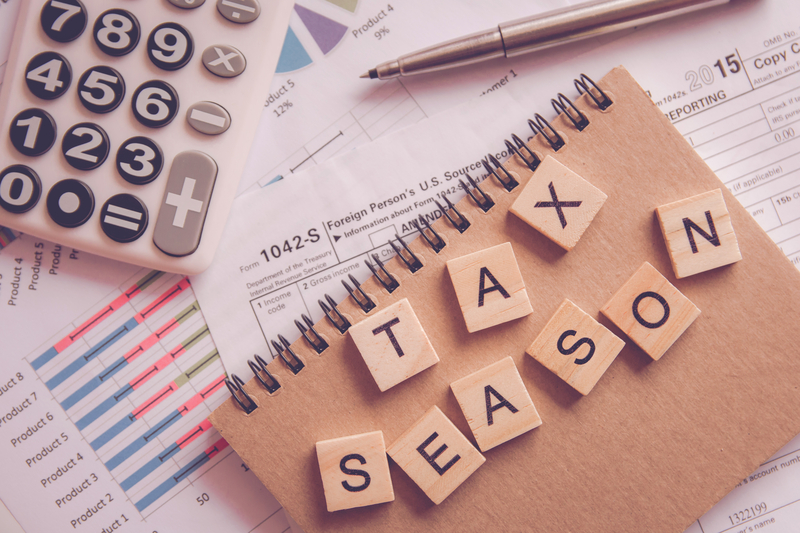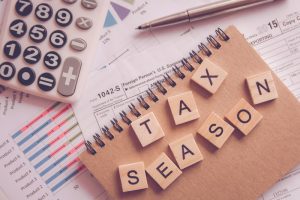Tax season is upon us and it’s a busy time! Each business must undertake the process of reporting earnings and paying income tax on business profits. It’s important to report income in the fiscal period you earn it, no matter when you receive it. It’s crucial to deduct business expenses but only if you incur them to earn income and if you are able to back up the claim. With filing deadlines approaching, what do you need to remember for this tax season? The following are some reminders for your business in this hectic time.
- File on time: If you wish to receive the benefits/credits your business is entitled to and avoid penalties, it’s important to file your return on time. File your return no later than six months after the end of each tax year. The tax year of a corporation is its fiscal period. If your business’ tax year ends on the last day of a month, file the return by the last day of the sixth month after the end of the tax year. If your tax year ends on March 31, your filing due date is September 30. If your tax year ends on August 31, your filing due date is February 28. If your tax year ends on September 23, your filing due date is March 23. When a filing due date falls on a Saturday, Sunday, or public holiday recognized by the CRA, your return is considered on time if the CRA receives it or if it is postmarked on or before the next business day. For more information, go to Important dates for corporations.
- File online: To receive your refund faster, sign up for a direct deposit and file your return online through NETFILE-certified tax software or the services of an authorized service provider who can use the CRA EFILE service.
- Claim all benefits, credits and deductions: Your business may be able to claim tax deductions, credits and/or expenses on your return. Top deductions for business owners include advertising expenses, business-use-of-home expenses, meals and entertainment, office expenses and vehicle expenses.
- Remit GST: You may be required to register and file a GST/HST return. Your GST due date depends on your tax filing period. Some businesses choose to pay their GST/HST quarterly or annually. For more information on how to (pay) your GST/HST, the CRA has additional guidance here.
- Reduce adjustments: To reduce the number of changes made to your business return each year, find information about common adjustments, including how to get forms, guides and other publications.
- Pay on time: To avoid interest charges, pay any balance owed by the deadline. If this is not possible, work out a payment arrangement with the CRA.
- Keep receipts/documents: In case you are selected for review, keep all receipts/documents for at least six years. If you’re self-employed or a sole proprietor, you may need to keep some of your business records for a longer period of time.
- Claim non-capital losses: If your expenses exceed business income in any year, use this loss to decrease your income tax bill. The loss can be carried back three years or carried forward up to 20 years. Your Chartered Professional Accountant can help you decide if it makes sense to use the non-capital loss in the current tax year, carry the non-capital loss back to recover income tax you’ve already paid or carry it forward to offset a larger tax bill.
- Strategize your capital cost allowance: Instead of deducting the cost of the depreciable property you’ve acquired in your business in a particular year, deduct this cost over a period of years through a capital cost allowance claim. You can use as much or as little of this claim in any year and carry any unused portion forward to help offset a larger income tax bill in the future. Also, consider buying and selling your assets at the right time. Buy new assets before the end of your fiscal year and sell old assets after the current fiscal year.
- Manage RRSP and TFSA contributions: Registered Retirement Savings Plans and Tax-Free Savings Accounts are excellent income tax deductions for small-business owners. Since some or all of your allowable RRSP contributions can be carried forward into subsequent years, you’re better off saving RRSP contributions for years in which you expect a high income. If you’ve maxed out your RRSP contributions and need a tax-free place to put cash or investments, the TFSA is a good choice. TFSAs allow you to shelter savings and investment income from taxes. Income and capital appreciation from stocks, bonds, or other interest-bearing instruments are tax-free inside a TFSA. Your Chartered Professional Accountant can help you maximize savings using RRSPs and TFSAs.
Business taxes are complex and complicated. Consider hiring a CPA. Most businesses prefer to have a certified professional accountant complete their Canadian income tax returns. This saves time and effort, provides assurance of accuracy and increases your chances of efficient tax planning.
Need help with your business’ tax returns? Looking for business advice? Contact Cook and Company Chartered Professional Accountants. We are based out of Calgary, Alberta, serving clients across Canada and the United States. We provide high-quality tax, assurance and succession planning services for a wide variety of privately-owned and managed companies. Contact us for a complimentary consultation.



